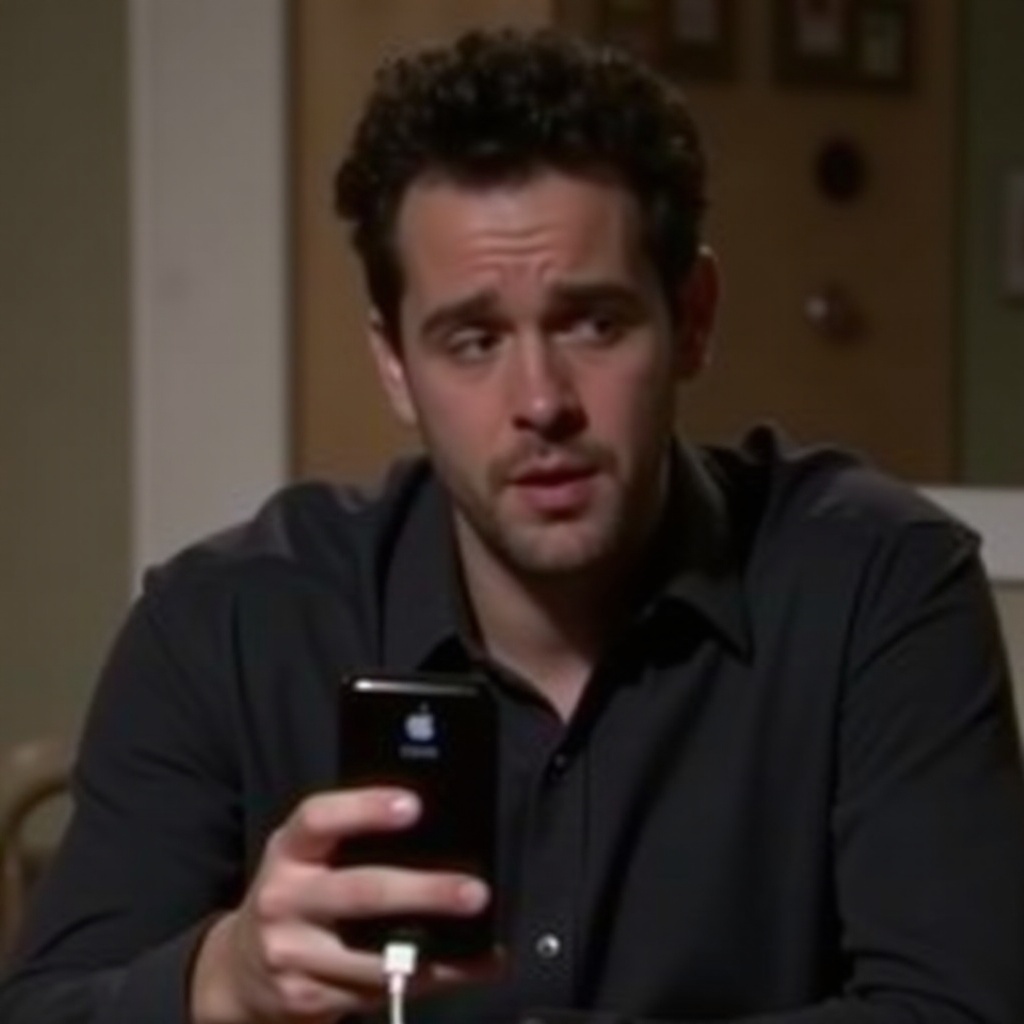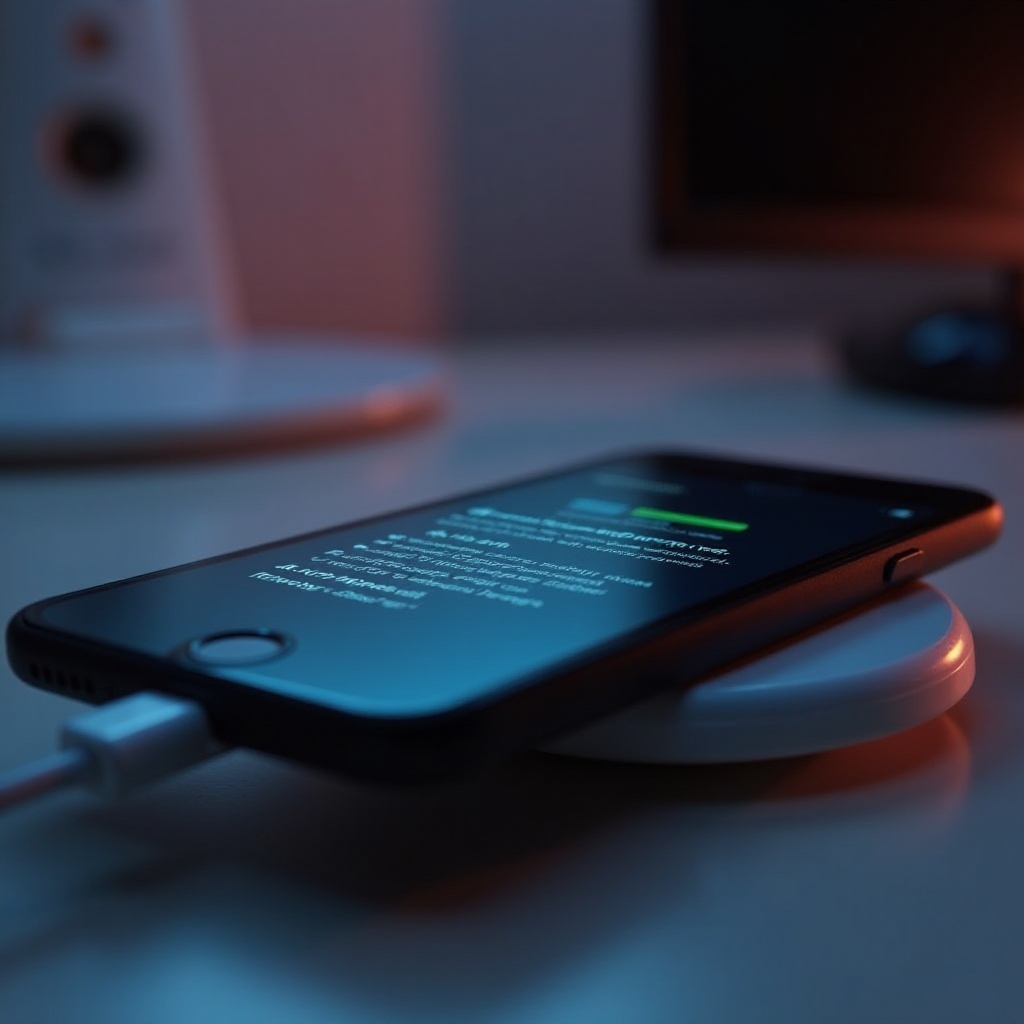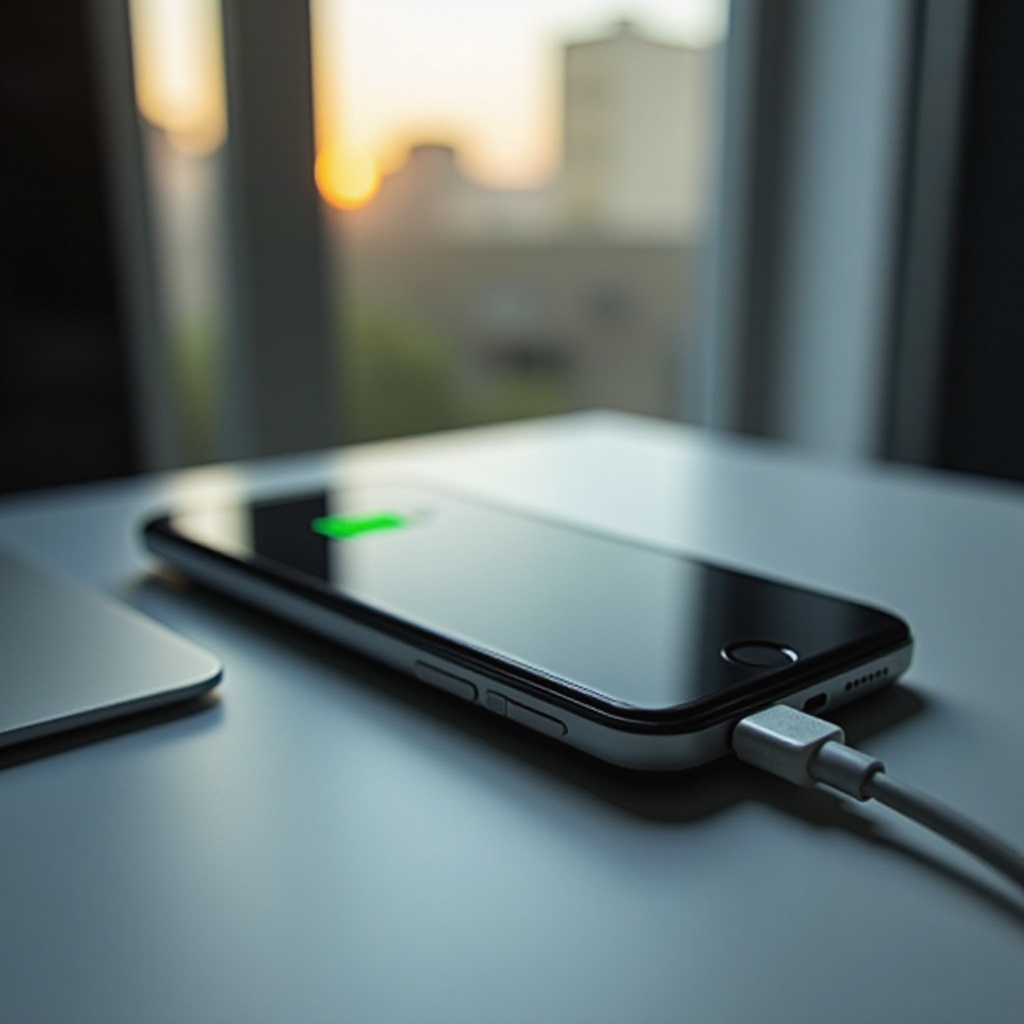Introduction
Have you ever connected your iPhone to charge, anticipating a quick power boost, only to discover it barely gaining any power? Slow charging can be incredibly frustrating, especially when you’re counting on a fully charged phone to kick off a busy day or to simply enjoy some downtime with music or videos. Addressing these charging speed issues is crucial in ensuring your device is always ready when you need it. Let’s dive into the potential reasons your iPhone might be charging slowly and explore how you can effectively troubleshoot and resolve such issues.

Understanding iPhone Charging Basics
While it may seem simple to plug in your iPhone and expect it to charge swiftly, there is a sophisticated system at play. The health of your iPhone’s battery is a significant factor influencing charging speed. Over time, batteries naturally degrade, limiting their capacity and speed of charging. Additionally, the choice of charger and cable you use plays a crucial role in charging efficiency. Apple’s certified products are specifically designed for optimal performance with iPhones, ensuring both a faster and safer charge. In contrast, non-certified cables may not adhere to these standards, potentially causing problems. Ensuring the charging port is free from obstructions is equally vital for a stable connection.
Understanding these fundamental components enables you to pinpoint the specific issues that might be slowing down your iPhone’s charging. By recognizing these elements, you stand a good chance of resolving most charging-related challenges.
Common Reasons for Slow Charging
Battery Health and its Impact
As iPhones age, their batteries inevitably lose both capacity and efficiency. A decline in battery health implies a diminished capability to hold and receive charge rapidly, often resulting in the device taking longer to charge than usual. Regularly monitoring your battery’s health via the Settings app can offer insights into whether an aging battery may be to blame.
Cable and Adapter Issues
The effectiveness of your charging depends significantly on the quality of your cables and adapters. Damaged or non-certified cables can drastically reduce your iPhone’s charging speed. Frayed, bent, or internally damaged cables disrupt the power flow. For optimal results, always use Apple-certified or MFi (Made for iPhone) chargers, and carry out regular inspections for any signs of wear and tear.
Charging Port and Connector Problems
Over time, debris and dust can accumulate in your iPhone’s charging port, obstructing the connection between the charging cable and the device. This often results in slow or inconsistent charging. Regularly cleaning the port using a soft brush or compressed air can help in maintaining a firm connection, ensuring efficient charging.
Working through these physical components is just part of resolving slow charging issues. Software functionalities and settings might also play a pivotal role in the charging efficiency of your iPhone.
Software and Settings Influences
Impact of iOS Updates
While iOS updates typically bring new features and security enhancements, they can inadvertently influence device performance, including charging speed. Occasionally, updates cause increased battery drain as settings are recalibrated. By observing your phone’s charging performance following updates, you can determine if a software change might be affecting its charging behavior.
Managing Background Activity and Apps
Active applications running in the background can consume battery power even as your iPhone charges. Concurrently running heavy processes can drain power, resulting in longer charging times. Closing unnecessary apps and disabling background activity can free battery capacity, leading to a swifter charge.
Aside from software optimizations, the physical environment in which you charge your device could play a crucial role in determining charging efficiency.

Environmental and Usage Factors
External Temperatures
External temperatures have a significant influence on charging speed. Charging your iPhone in hot conditions can slow down the process as the device attempts to prevent overheating. Likewise, extremely cold environments can negatively affect battery performance. To maximize charging speed, it’s best to charge your iPhone in moderate temperature conditions.
Charging Habits and Best Practices
Your charging habits can also impact the speed at which your iPhone charges. Regularly charging from a low battery can stress the battery, gradually reducing its efficiency. It’s advisable to maintain a charge between 20% and 80% to prolong battery life and ensure quicker recharges.
When conventional strategies don’t resolve the issue, it’s time to delve deeper and seek specific solutions.
Diagnosing and Solving the Problem
Hardware Solutions
Begin by thoroughly inspecting your hardware. Ensure all cables, adapters, and charging ports are in optimal condition. Sometimes, investing in a new certified charging kit might instantly rectify the issue.
Software Solutions: Updates and Restores
Make sure there are no pending software updates that might address charging issues. If challenges persist, you might consider a factory reset or restoring your phone to its original settings. Such an approach can remove any software conflicts impacting charging.
When to Seek Professional Help
When all else fails and the charging issues remain unresolved, consulting with Apple Support or visiting an Apple Store might be necessary. Professionals can perform diagnostics to detect internal problems or battery defects and recommend an appropriate course of action.
By understanding these solutions and their correct applications, you can take proactive measures to restore your iPhone’s charging capabilities.

Conclusion
A slow-charging iPhone can stem from an array of issues ranging from hardware malfunctions to software and environmental factors. Gaining a comprehensive understanding of these aspects enables you to troubleshoot effectively. By maintaining hardware integrity and optimizing software settings, you can ensure a faster and more reliable charging experience.
Frequently Asked Questions
How can I tell if my iPhone needs a new battery?
Check the battery health feature in the iOS settings. If the maximum capacity falls significantly below 80% or indicates reduced performance, consider replacing the battery.
What types of chargers should I use for my iPhone?
Use Apple-certified or MFi-certified chargers. Avoid third-party adapters or cables that haven’t been tested for compatibility with your iPhone.
Can apps affect how fast my iPhone charges?
Yes, apps running in the background can consume power, thereby slowing down the charging process. Closing unnecessary apps can enhance charging speed.